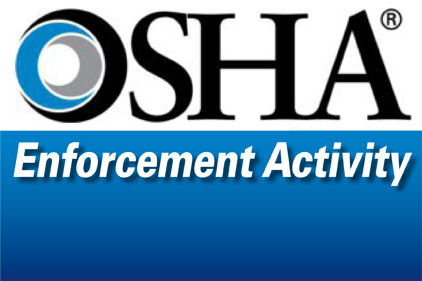 Two temporary workers injured in an explosion at Polychem Services Inc., were unable to return to work for months after being hospitalized with first- and second-degree burns, after their work site was ignited by a gas-powered forklift.
Two temporary workers injured in an explosion at Polychem Services Inc., were unable to return to work for months after being hospitalized with first- and second-degree burns, after their work site was ignited by a gas-powered forklift.
After learning of the Sept. 4, 2014, incident, OSHA investigators inspected the Chicago Heights facility and identified six willful, one repeated and four serious safety violations. Proposed penalties total $110,000.
"Two employees in their prime work years have suffered severe and painful injuries that keep them from their livelihood because Polychem Services ignored worker safety," said Kathy Webb, OSHA's area director in Calumet City. "Lack of training, combined with using a forklift not approved for this environment, proved an explosive combination. When you operate a plant producing flammable materials and byproducts, worker protection must be job one."
Both employees were assigned to the plant by Crown Services Inc., a temporary service employer. The 34-year-old worker, who had been employed at the facility for about six weeks, was hospitalized for six days. The 35-year-old worker, at the plant for about 11 months, was hospitalized for one day. Crown Services was not cited because it did not oversee or direct work at the site.
OSHA's investigation found that Polychem Services willfully failed to provide a suitable industrial vehicle for use in a hazardous location; did not train workers about hazardous workplace materials and lacked adequate drenching facilities for workers exposed to corrosive chemicals. The three willful violations remaining were cited under OSHA's respiratory protection standards.
A repeated violation was cited for failing to train workers on required personal protective equipment. Polychem Services was cited for this violation after a worker suffered second-degree burns at the facility in November 2010.
OSHA cited Polychem Services for four serious violations for failure to provide and require the use of appropriate body protection; train employees on how to use powered industrial vehicles; eliminate trips, slip and fall hazards; and provide running water and operating toilet facilities.

